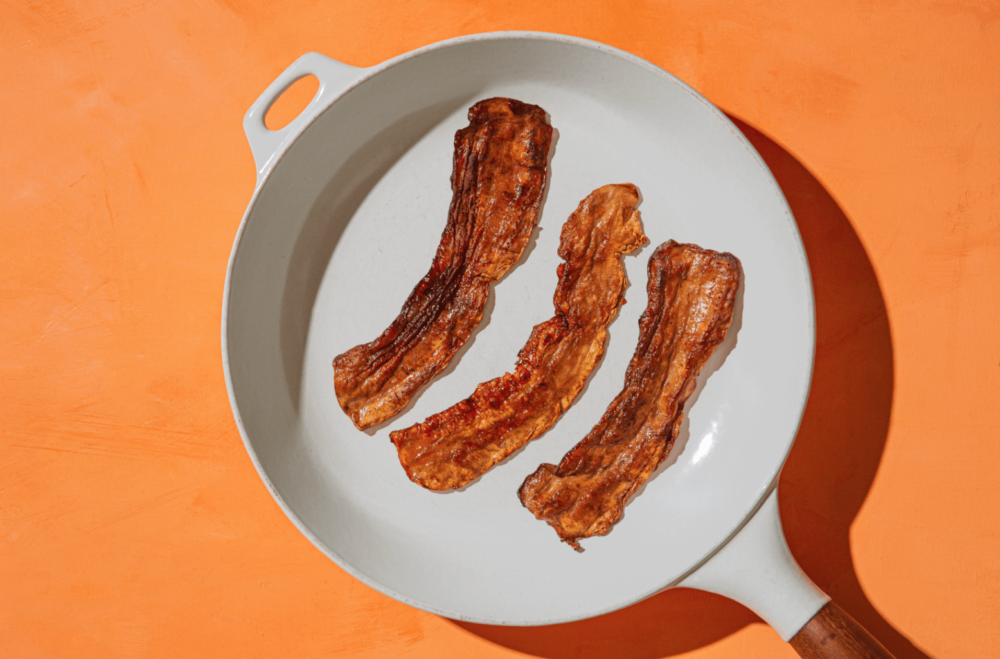US alt-protein startup Atlast has raised $40 million in a Series A round led by Viking Global Investors. Also participating in the round were 40 North – an investment fund affiliated with building materials manufacturer Standard Industries – AiiM Partners, Senator Investment Group, Stray Dog Capital, and Hollywood actor Robert Downey Jr’s Footprint Coalition.
Several unnamed individuals from food industry companies including “natural and organic” meat provider Applegate, organic dairy producer Stonyfield, and Amazon-owned grocer Whole Foods also joined the round.
Based in Green Island, New York, Atlast is developing “plant-based” – or, more accurately, fungi-based – versions of whole-cut meats in partnership with parent company Ecovative Design, from which it was spun out in September 2019. It launched MyBacon, the first product under its direct-to-consumer MyEats label, in November 2020.
To date, the analog most commonly produced by plant-based protein startups has been ground meat, or derivates such as burger patties and sausages, which are easier to substitute than muscle whole cuts like bacon, steaks, and chicken breast.
Atlast is one of several alt-protein startups which are fast at work trying to fill the whole-cut gap. One such player is Israel’s Aleph Farms, which unveiled what it claimed to be the world’s first slaughter-free ribeye steak – manufactured using 3D bio-printing technology – in February this year.
But while Aleph and others are aiming to tap the whole-cut meat market through cell-culturing techniques, growing actual meat from animal cells, Atlast is one of a handful using mycelium – the vegetative, thread-like structure that fungi use to absorb nutrients from their environment.
“Mycelium [is] nutritious, versatile, and scalable,” Stray Dog Capital CEO Lisa Feria said in a statement. “Consumers should get ready to see a lot more mycelium in their stores and on their plates.”
Another startup using mycelium to produce food protein is Germany’s Mushlabs, which raised $10 million last August in a Series A round co-led by Singapore’s VisVires New Protein and Switzerland’s Redalpine.
Some companies are leveraging mycelium for non-nutritional purposes, too; last November, California’s MycoWorks closed $45 million in Series B funding for its ‘animal-free leather.’ [Disclosure: MycoWorks has received investment from AgFunder, which is AFN‘s parent company.]
Atlast plans to use the Series A funding to scale up, boost its R&D capabilities, and hire more personnel. Some of the capital will also go towards to ongoing construction of an “aerial mycelium farm,” which Atlast claims will be the largest mycelium production facility in the US.
“If you love bacon and the planet, Atlast has created a six-ingredient solution for enjoying one without harming the other,” Downey Jr said in a statement.
“Atlast has a great team, a strong business plan, and the full, undying support of my Kunekune pigs, Ladybug and Pops.”





